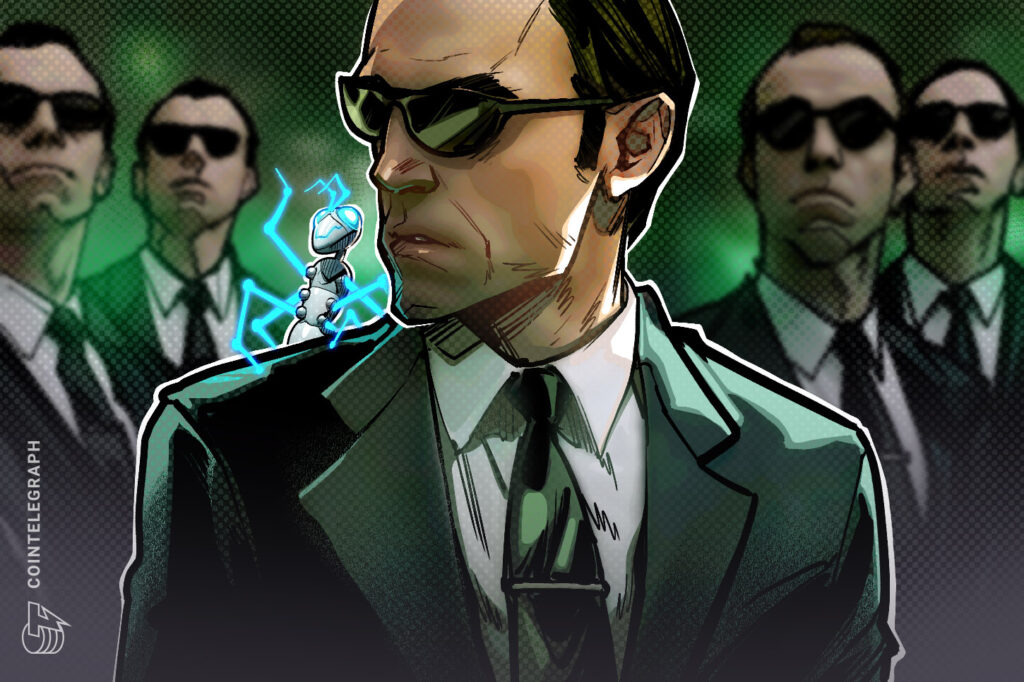30s Summary
New web3 protocols are suggesting that crypto traders can no longer hide behind the anonymity of their crypto addresses. Tech leaders from privacy-focused crypto network INTMAX and AI blockchain Nillion believe that artificial intelligence and sophisticated blockchain tracking software can uncover previously hidden data. INTMAX uses zero-knowledge proofs to verify transactions without exposing private info, while Nillion uses multi-party computation tech to restrict data visibility. Both systems are designed to fend off hackers while practicing transparency and maintaining user privacy.
Full Article
Ever since cryptocurrency kicked off, folks have hidden behind the mysterious identity of their crypto address. This has kept their privacy somewhat intact, because although anyone can see your crypto transactions, they usually can’t figure out who you are.
This system has been going fine since Bitcoin rolled into town in 2008. But, some new Web3 protocols reckon it’s time to revisit the idea of enough being enough when it comes to hiding our identities.
Why? Well, it’s mainly because of the rise in fancy artificial intelligence and their huge hunger for data. Protecting your personal info and keeping control of your own data has never been more important.
## A single hack can blow your cover
Leona Hioki, a top tech person for a privacy-focused crypto network called INTMAX, reckons that just hiding behind an alias isn’t enough to protect people anymore.
Even tough crypto trading platforms ask for your photo ID before letting you trade, this just means that if one cheeky hacker gets inside the platform’s security, your deposit address could be revealed. Once this connects to your real name, your whole trading history’s out there for all to see.
Take a look at what happened to Japanese exchange Liquid. They got seriously hacked in 2021. Later, they were bought by another company, FTX, and renamed “FTX Japan.” Fast forward a bit, and they wind up bust after the wider FTX platform collapsed. So what’s the root of the problem? Well, key data is being held in a giant treasure chest and sometimes, it gets stolen. But it’s getting worse, because super-smart blockchain tracking software has made it almost impossible to avoid this happening.
INTMAX has one idea on how to stop our private info from being outed – they use something called zero-knowledge proofs, which let them verify transactions without having a scooby about the data in them.
## AI tech is making things trickier
Alex Page, the founder of AI blockchain Nillion, thinks the days of being a faceless user are gone. In today’s world, artificial intelligence models need loads of user info to provide individual results.
Page believes that if we keep trusting centralized systems to protect our privacy, we’re in for a letdown. He gives Gmail as an example – despite claims of privacy, we all see ads in our Gmail that are based on our emails’ content.
Page’s solution? Multi-party computation tech, or MPC for short. It restricts who can see data and lets people work together without having to share their data with big tech firms and social networks.
Page has actually whipped up a messaging platform on Nillion that lets you chat privately with mates, unlike most platforms that need a big server to operate.
## Keeping the baddies at bay
It’s fair to wonder whether privacy on blockchain might let hackers and other bad types dodge justice. But, both Hioki and Page think it’s possible to keep troublemakers away while maintaining privacy.
To kick out the foul players, INTMAX uses a decentralized chain analyzer to assign risk scores to deposits. The network doesn’t allow big hackers to deposit, making it a major turn-off for them. As for the chance of blocking innocent users, Hioki reassures that this is unlikely as the threshold is set pretty high.
Page recognises that there will always be troublemakers. However, he thinks that simply giving people the chance to develop won’t necessarily make it easier for the naughty ones. As he put it, it won’t be ‘the easier pathway for them to do the nefarious acts they were doing before’.

